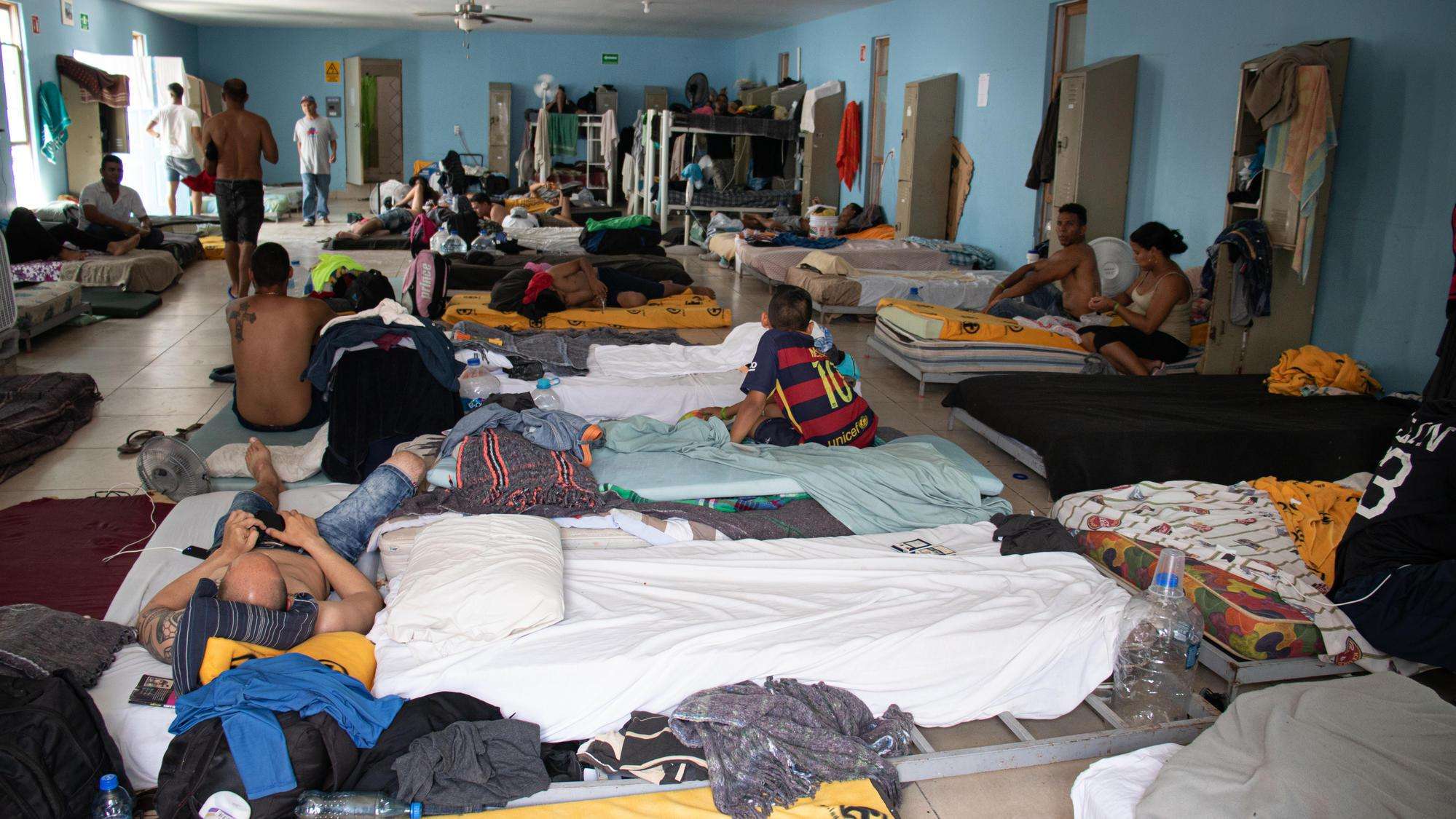Thousands of people seeking asylum in the United States are stranded in dangerous places along the Mexican border as a result of the “metering” policy recently introduced by the US government and implemented by Mexico. The policy, which limits the number of asylum applications that can be made each day at ports of entry on the border between the two countries, leaves growing numbers of vulnerable people trapped in areas where crime is rampant. Asylum seekers—many of whom have already suffered horrific violence on their journey north—do not have adequate access to protection or to much-needed humanitarian assistance.
A year ago, the only shelter helping migrants in the border city of Reynosa, in Mexico’s Tamaulipas state, was almost empty. Today, that facility, which can accommodate 180 people, currently shelters more than 400.The same situation can be seen in other border cities such as Nuevo Laredo or Mexicali.
Since the beginning of 2019, the number of migrants and asylum seekers arriving in Reynosa has increased. From January to June, Doctors Without Borders/Médecins Sans Frontières (MSF) teams went from carrying out 20 consultations daily to 35 in the Reynosa shelter. Over the same period, our health promotion team made 1,366 referrals to medical and psychosocial services.
“A highly vulnerable state”
“We see women and men alone, but we also see many families arriving in a city that does not have any humanitarian capacities to receive them,” said Anayeli Flores, social support officer for MSF in Reynosa. “They arrive in a highly vulnerable state, after encountering dangers along the Mexican migration route.”
From June 2018 to June 2019, 45 percent of the 2,315 mental health patients cared for by MSF in Reynosa and Matamoros said they had been victims of violence along the migration route. Of those, 33 percent had been physically assaulted and 19 percent had been subjected to sexual violence.
Because Reynosa’s lone shelter is at capacity, Flores said, many people have no choice but to find other accommodations in the notoriously violent city. “The patients we see tell us that they have been victims of extortion, assault, and kidnapping attempts,” she said. “They are in an insecure situation.”
Since 2017, MSF has provided medical humanitarian assistance to victims of violence in the Tamaulipas borderlands through a comprehensive health care project. Medical, psychological, and social care is offered at different points along the border, including the General Hospital, the Senda de Vida migrant shelter, the Casa Guadalupe shelter, the Tamaulipas Institute of Migration, and at a fixed clinic.
Beginning in 2018, we expanded activities to Matamoros, an hour away from Reynosa, where we offer health services to both asylum seekers and migrants attempting to reach the US and people recently deported from it.
Forced return
Most of the Mexican migrants forced to return to their country leave behind families and jobs in the US. For these reasons, they are willing to try to cross the border again, even after being detained.
Many returnees arrive in Mexico with stories of suffering in detention in the US. “I was in the ‘cooler’—a very small space for 15 or 20 people at most—but there were more than 40 of us,” said Julio* wearily, referring to the frigid rooms known as hieleras. Mari*, a 27-year-old returnee, said she too was held in a crowded facility. “We slept on the floor. There were pregnant women, and little children who had been separated from their families,” she said.
The medical needs are visible. Most returnees treated by MSF suffer from respiratory or stomach problems that could be the consequences of being detained in cold and overcrowded spaces. We’ve also documented mental health issues caused by patients’ traumatic experiences in their countries of origin, along the migration route, and during detention and deportation.
Reynosa and other cities in Tamaulipas state do not have the capacity to respond to the needs of migrants, asylum seekers, and returnees.
MSF is calling on the governments of Mexico and the US to stop implementing harmful migration policies that put peoples’ lives at risk. These governments must ensure that migrants and asylum seekers are protected and treated with dignity, and provide humanitarian assistance for vulnerable people who have fled violence and persecution.




